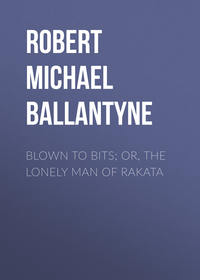Kitabı oku: «Blown to Bits; or, The Lonely Man of Rakata», sayfa 5
Bir şeyler ters gitti, lütfen daha sonra tekrar deneyin
Türler ve etiketler
Yaş sınırı:
0+Litres'teki yayın tarihi:
01 aralık 2018Hacim:
341 s. 2 illüstrasyonTelif hakkı:
Public Domain